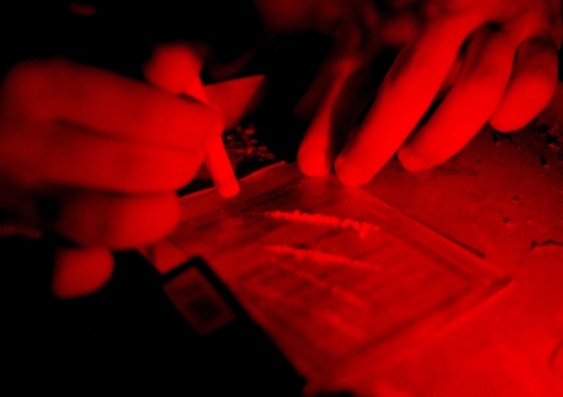Recreational drug use high, but dependency low among gay and bi men in Australia
Results from the largest study of legal and illicit drug use among gay and bisexual men in Australia suggest recreational drug use is common but dependency is low.
Results from the largest study of legal and illicit drug use among gay and bisexual men in Australia suggest recreational drug use is common but dependency is low.

Laurie Legere
Kirby Institute at UNSW
+61 (2) 9385 9987
llegere@kirby.unsw.edu.au
Results from the largest study of legal and illicit drug use among gay and bisexual men in Australia suggest recreational drug use is common but dependency is low.
The study, published today by the Kirby Institute at UNSW Australia, has found over three quarters of gay and bisexual men have used illicit drugs at some stage, with half reporting drug use in the last six months.
The most commonly and frequently used drugs are marijuana and amyl nitrite (‘poppers’). Over a quarter of men surveyed had used some sort of ‘party drugs’ in the previous six months, including cocaine and amphetamine-type stimulants such as ecstasy, speed and crystal meth.
The most common reason given for illicit drug-use among respondents was for pleasurable experiences and to enhance their sexual enjoyment.
“Although the specific role of drug use in HIV infection remains unclear, the reality that men are using drugs to enhance sexual experiences means that this is an important area for HIV and other STI prevention research,” said Associate Professor Garrett Prestage, Chief Investigator of the study.

Little is known about the changing patterns of drug use over time among gay and bisexual men (Photo: Flux study)
Despite recent media attention given to ‘ice’ use among gay men, only a small minority of respondents reported using crystal meth weekly, or having a dependency on crystal meth.
One in eight men surveyed had used crystal meth recently, but the majority indicated they did so without harmful consequences.
A small proportion of recent crystal meth users expressed some concern about their use, with one-third feeling that at times they wish they could stop. Only a small minority reported feeling dependent about their drug use in general.
The most commonly and frequently used drugs are marijuana and amyl nitrite (‘poppers’).
“Already, we have learnt that while most gay men appear to use illicit drugs with minimal risk, there is a minority who experience problems as a direct result of their drug use,” said Associate Professor Prestage.
“Increasing our understanding about the behaviours, attitudes and social networks in the context of drug use in these communities will give us a better understanding of the factors that lead to problematic drug use, and allow us to target our harm reduction interventions more appropriately.”
Read the full Kirby media release here. A copy of the report on the Flux Study (following lives undergoing change) is available here.
More about Flux
The Flux Study explores the reasons gay and bisexual men commence, change, and stop their drug use behaviour, and whether they experience any direct health consequences.
The Kirby Institute research team surveyed 2251 men for the baseline questionnaire, with follow-up questionaries of over 1700 men over the next two years. A final report will be released in 2017.
The study was established by the Kirby Institute, in close collaboration with the National Drug and Alcohol Research Centre and the Centre for Social Research in Health at UNSW Australia, the Australian Research Centre in Sex, Health and Society at La Trobe University, ACON, the Victorian AIDS Council and the NSW Users and AIDS Association. Funding is provided by the Australian Research Council.